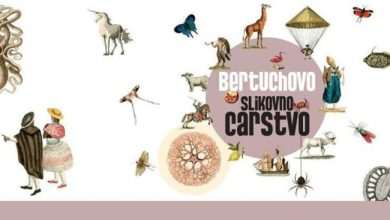A few years back a list of ’25 forgotten Yugoslavian monuments that look like they are from the future’ was going viral and was aggravated by all sorts of media, from Buzzfeed to Daily Mail with millions of views and comments of adoration. It was a series of photographs taken by Jan Kempenaers for his book Spomenik with which he wanted to draw attention to the stunning and overlooked peaces of art. The post, as they do, faded into the vastness of the internet, but the monuments and somewhat deliberately forgotten artistic heritage of that era still remain.
Twenty five years after the fall of communism, efforts are being made by experts in the field (including artists like Kempenaers) and to reevaluate and valorize the artistic value of those works outside of daily politics throughout the eastern side of the Iron Curtain. The efforts are shy and are being made on the sidelines of mainstream public discussions on art as socialism is still a dirty word in everyday politics (and Tito, who commissioned most of the monuments seen here, still being a very controversial figure), but as years go by and more and more western tourist and experts show interest in the heritage and art styles that it spurred, the antagonisms towards that heritage are loosening. One such effort is the two day international symposium Socialist Monuments and Modernism being held in multimedia institute MaMa, Preradoviceva street 18, starting November 6th.

The symposium will address problems of historical views of socialist monuments in terms of both art history and history of former socialist countries and emancipatory struggles that inspired Modernism. By bringing together researchers across different fields and disciplines the symposium will address questions of form and style of the monuments, spatial planning and commemorative practices that emerge from both the East and West through the span of the 20th century.

Modernism will be taken as the socio-political base whose (ideological) superstructure the monuments were supposed to represent. Socialism will be viewed as a modernist project. Understanding Modernism not only as a period in art history but as a social and political practice, the symposium will try to detect and elaborate on the differences between memorials in former socialist countries as well as their difference with memorials in the West.
Questioning the decay and destruction of socialist monuments after the fall of the Iron curtain and the recent attempts of their revival from a position of materialistic history, the conference will also address the aesthetic fetishism of Modernism today and attempts at its appropriation into the canon of national arts.

The symposium is adopted for English speakers and is free to attend. If you want to learn more about Modernism and art in socialism, architectural practices, a bit of history and how socialist countries deal with theirs, the symposium is a good place to start.
Schedule:
FRIDAY, November 6th 2015
10:00 am – 10:30 am
Introductory speech
10:30 am – 1:30 pm
Hero, partisan, worker: Figures of Modernity
Rachel Aumiller: Finding Antigone Among Slovenia’s Undead
Tomislav Augustincic: A People’s Hero, a Monument and the Social Memory. Rade Koncar in the midst of Social(ist)/Modernist Projects and Paradigms of Production
Owen Hatherley: Monuments to Glorious Defeat – Socialist Memorial Art in Britain
1:00 pm – 3:00 pm
Lunch break buffet
3:00 pm – 6:00 pm
Normalizing Socialism
Aneta Vasileva, Emilia Kaleva: Recharging Socialism: Bulgarian Socialist Monuments in XXI. Century
Vlada Kulic: Countering Orientalization
Agata Pyzik: The Afterlife of Red Army Memorials in Poland: International Perspective
6:00 pm – 7:00 pm
Round table discussion
SATURDAY, November 7th 2015
10:00 am – 1:00 pm
Spaces of Post-socialism
Romeo Kodra: Architectural Monumentalism in Transitional Albania
Goran Janev Burdensome: Challenging the Socialist Heritage in Macedonia
Iva Grubisa: Who remembers in Tresnjevka? Memorials to Partisan Printing Houses Between Social Memory and Oblivion
1:15 pm – 2:00 pm
Milan Rakita: Modernization Discourse and its Discontents
2:00 pm – 2:20 pm
Coffee break buffet
2:20 pm – 3:00 pm
Round table discussion
The symposium takes place as part of the international collaborative project Heroes We Love.

